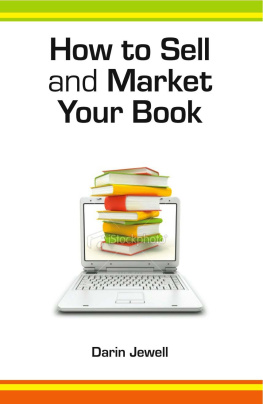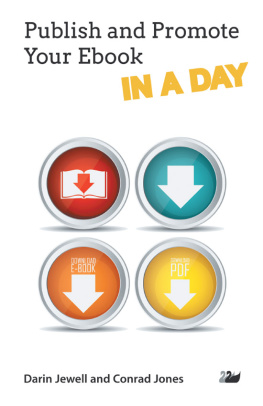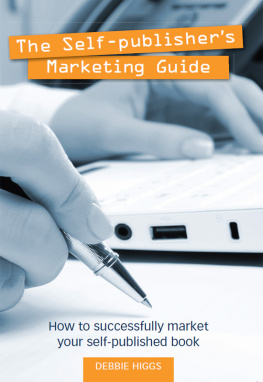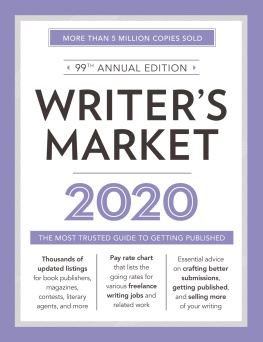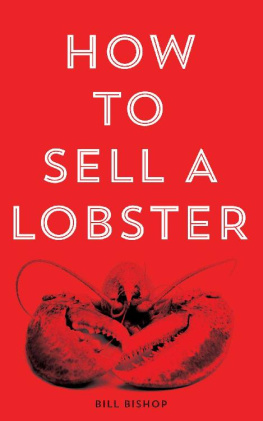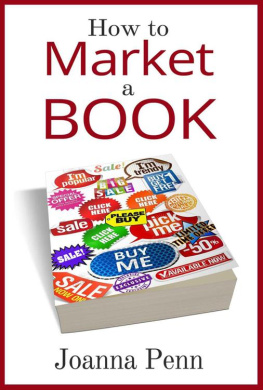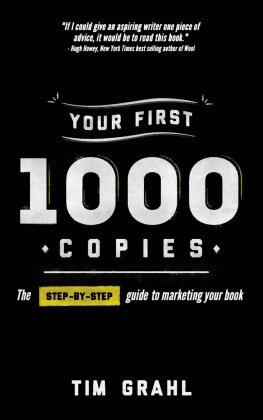The purpose of this book is two-fold. Firstly, it is intended to help authors sell as many copies of their book as possible. Secondly, and as a result of healthy sales figures, it will serve to help authors raise their literary profile.
These two aims are self-perpetuating. The more copies of your book you can sell, the wider your readership. The more readers you have, the more your name will become known and your writing will be taken seriously. As readers recommend and review your book, this in turn will help to sell more copies, and so on.
The problem is often knowing where to begin, what steps to take and in what order. This book sets out the promotional tools available to you and advises which paths are likely to sell the most number of copies of your book and which will help to establish your name as a published author.
Just remember that with each book that you sell, you will get closer to reaching critical mass, which is the stage at which your book will start to sell itself through favourable reviews and recommendations.
Unfortunately, books do not reach the market on their own. Rather, you have to introduce them into the marketplace and encourage people to buy copies and read them.
It takes careful planning and know-how, and there is nobody better able to promote your book than you. The more that you are actively involved in marketing your book, the better your chances of success.
INTRODUCTION
This is a straightforward step-by-step guide to selling and promoting your book.
The marketing activities listed in the book are set out primarily in chronological order, in the order in which they should be done including pre-publication work and post-publication promotion over a three-year period. Depending on where you are in the publishing process, you can decide which chapter to start with in this book, and work your way forward.
The first step is always careful planning; so this book begins by explaining how to set up a marketing plan specifically tailored for your book.
Before your book is published, it would be helpful to design a website which promotes you and your book so that you can include the website domain name on all of your book's literature, e-mails, and so on. Also, having a website will provide another potential retail outlet for your book.
You then need to decide what supporting literature you might require for your future promotional activities such as letter-headed paper, posters, bookmarks and business cards.
Once your book is published, you can draft a press release and upload it to various PR websites and newswires, as well as send a tailored e-mail to relevant trade or literary groups inviting them to purchase and review your book.
About a month after your book is published, you may want to organise a formal book launch. It's important to decide the right venue for your launch and how much you should spend on it, as often authors spend their whole marketing budget and a lot of time on one big event and, a few weeks later, there's no further activity and so the momentum and sales built up from the launch taper off.
The more you can convince your friends and family to help spread the word about your book and assist with media coverage and reviews, the better. Some (but not all!) of your relatives and colleagues will be happy to help it's a matter of knowing what to ask them to do and how to ask them to do it.
E-mail marketing campaigns can be useful. Still, it can also be counterproductive, depending on how it is done. Similarly, advertising on the internet and in print media can generate leads and interest, but this should be well researched. I know one author who spent over 800 on a box advertisement for his book in Time Out, and it helped him to sell three more copies. That comes to around 265 per book, which is not money best spent when you consider that he could have paid for a decent website and some promotional literature for that amount.
Book reviews are useful both in terms of raising awareness of your book, and convincing people to actually buy copies. You can organise reviews for your book on Amazon and other websites which sell your book, and publications which specifically review self-published books. Seeking endorsements or recommendations from major book groups can also be useful.
Social networking both online and offline can be one of the most effective means of promoting yourself and your book. It is just a matter of targeting the right discussion boards, review websites and literary forums. Similarly, there are various groups and societies which authors can join which will provide them with a means to talk about their book with others who might help them with reviews, feedback and so on.
Depending on the type of book that you have published, many authors today are taping and uploading short videos which can be used as trailers for their books. Others are taping and selling their books in audio format, which is becoming much more commonplace today. Some samples are provided in this section of the book, along with free resources and effective video and audio platforms to achieve this.
Newspaper, magazine and radio coverage is discussed in the next section. The rule of thumb to follow is to start with your local press media, and then broaden out to regional coverage. Once those are achieved, then you can shift your focus to national and international coverage.
One of the main difficulties with marketing self-published books is getting them onto bookshelves in bookshops. This section tells you how to achieve this and what questions to expect and pitfalls to avoid. It often takes 4-6 weeks after the official publication date of your book before it shows up with an ISBN number on the computers at many bookshops, and it is essential to wait until it does appear before speaking with them. Meanwhile, any local press coverage that you can secure beforehand will increase your chances with the bookshops.
Similarly, most bookshops are reluctant to allow book signings for self-published books unless you're a local author, and even then it often takes some convincing. However, if you speak to the right person and say the things that he or she wants to hear, you can set up a book signing tour if you are determined for your book to succeed.
Talks at schools and libraries can also be useful both in terms of raising your profile and selling copies of your book. It is useful if you can focus on the central libraries and link your talks to a local bookshop which can provide copies of your book. Obviously, it is important that your talk be interesting and informative to your audience.

